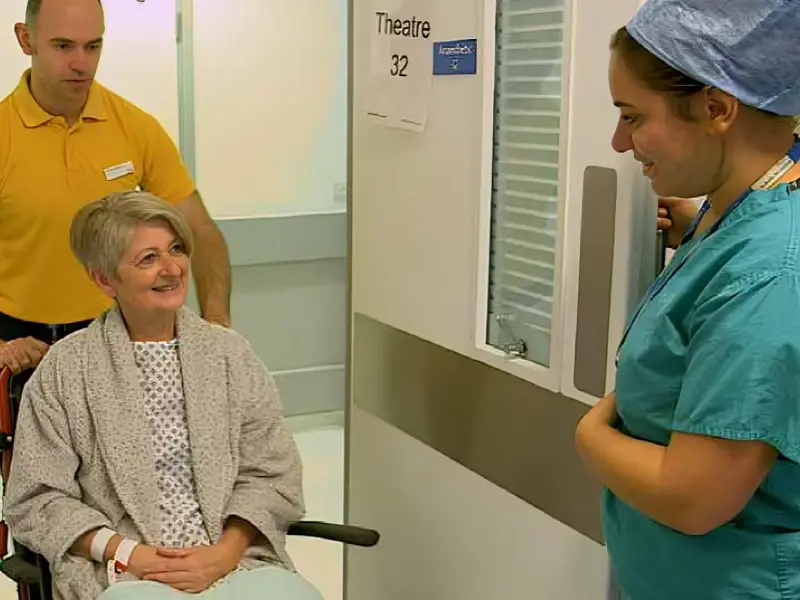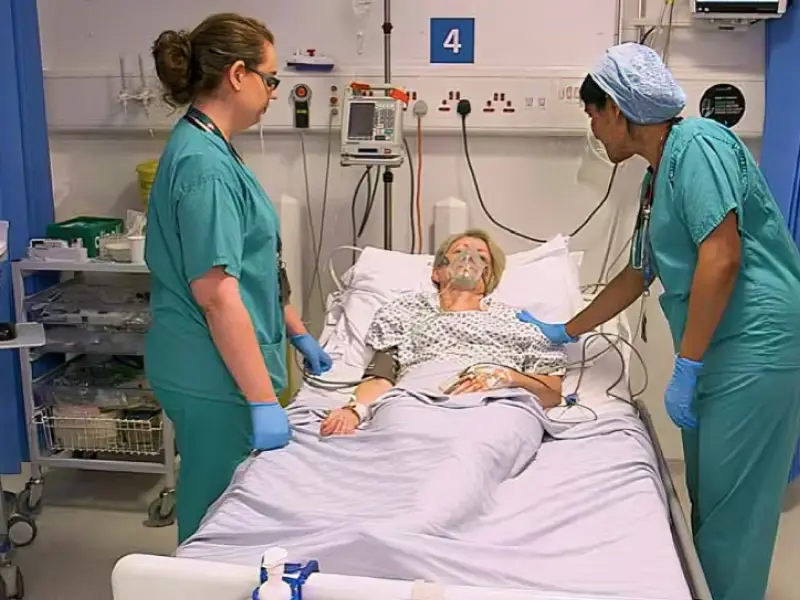Surgical gowns
When you are getting ready for your treatment, you will be asked to put on a surgical gown. Unless you have been told otherwise, please remove your underwear (you can request disposable underwear if you wish). The gown ties at the back, and to ensure you are fully covered, we advise you bring a dressing gown and slippers with you.
Transfer to theatre
You will usually go to theatre in a wheelchair or a stretcher. Please ask for clothing that will keep you fully covered, such as a dressing gown or blanket, if you have not brought your own.

Being asked questions
You may wonder why different people, or even the same person, ask you the same question a number of times, such as confirming your name or date of birth. Don’t worry; this is an important safety check to ensure all of your details and information about your treatment are correct.
Arriving in theatre
When you arrive in theatre, on most occasions, you will be transferred directly to the operating theatre, where you will have your anaesthetic. Sometimes this takes place in a separate anaesthetic room.
Theatre recovery
After your operation, you will be transferred to a recovery area. This area may contain both male and female patients who, like you, will be recovering from their operation.

Maintaining your privacy and dignity during this time is our priority:
- We use separate areas for men and women where practically possible, or use curtains for privacy.
- Staff will ensure that you are covered at all times with a gown/blanket.
- We may need to check your wound dressings or examine you, which will always be done behind privacy curtains.

